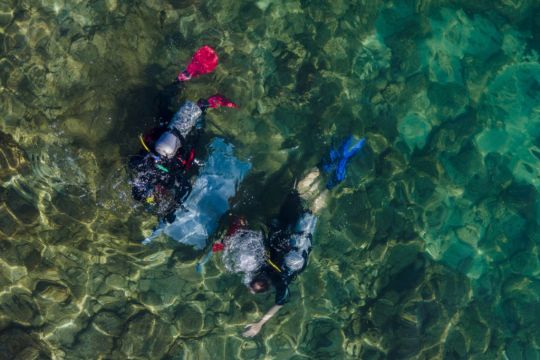Divers visiting the ancient seaport of Caesarea on Israel’s Mediterranean coast occasionally find treasure, but on Friday they searched for rubbish.
Twenty-six scuba-diving volunteers removed around 45kg of rubbish from between the sunken pillars and submerged ruins of the historic site of Caesarea Maritima as part of a United Nations World Oceans Day initiative.
Dozens more at sites along Israel’s Mediterranean coast and on the Red Sea reefs in the Israeli resort of Eilat removed more than 150kg of rubbish.
The clean-up included bottles and bags, ghost nets, fishing lines, aluminium cans, lost towels and other odd items, including a beach lounger, that were polluting coastal waters.

The events were organised by the Israeli Diving Federation with support from the Environmental Protection Ministry and Nature and Parks Authority, which manages the coastal areas, including Caesarea’s Roman-period port.
The UN marked World Oceans Day on Wednesday, but the scuba diving volunteers were taking to the water to clean the sites on Friday and Saturday, Israel’s weekend.
The UN’s environment programme says the equivalent of a rubbish truck full of plastic is dumped into the ocean each minute.
Plastic waste can take centuries to degrade, and causes extensive damage to marine ecosystems.







